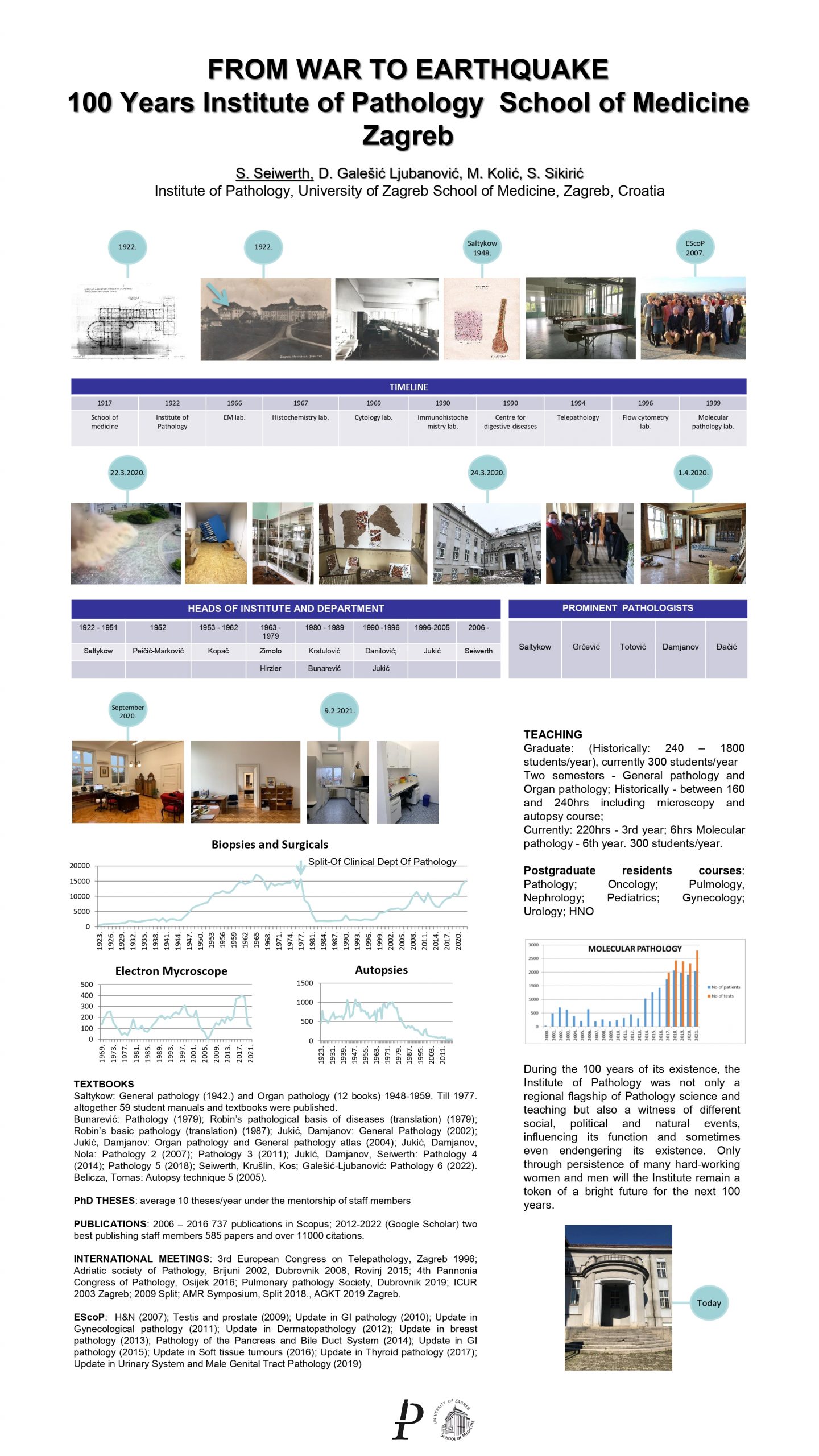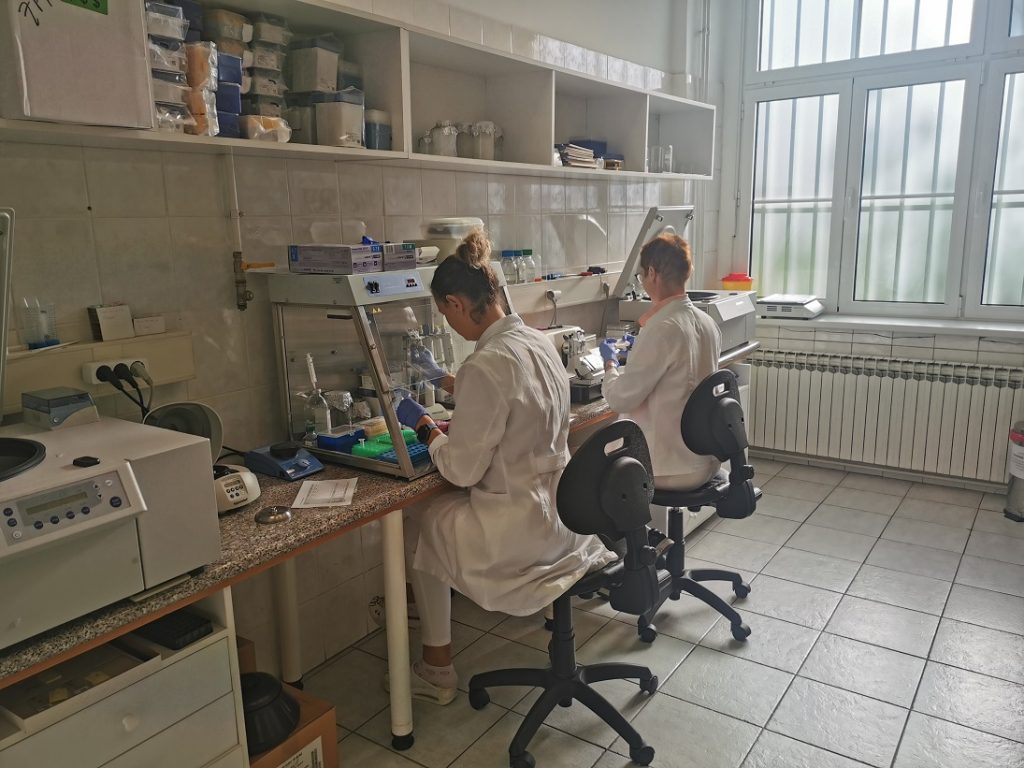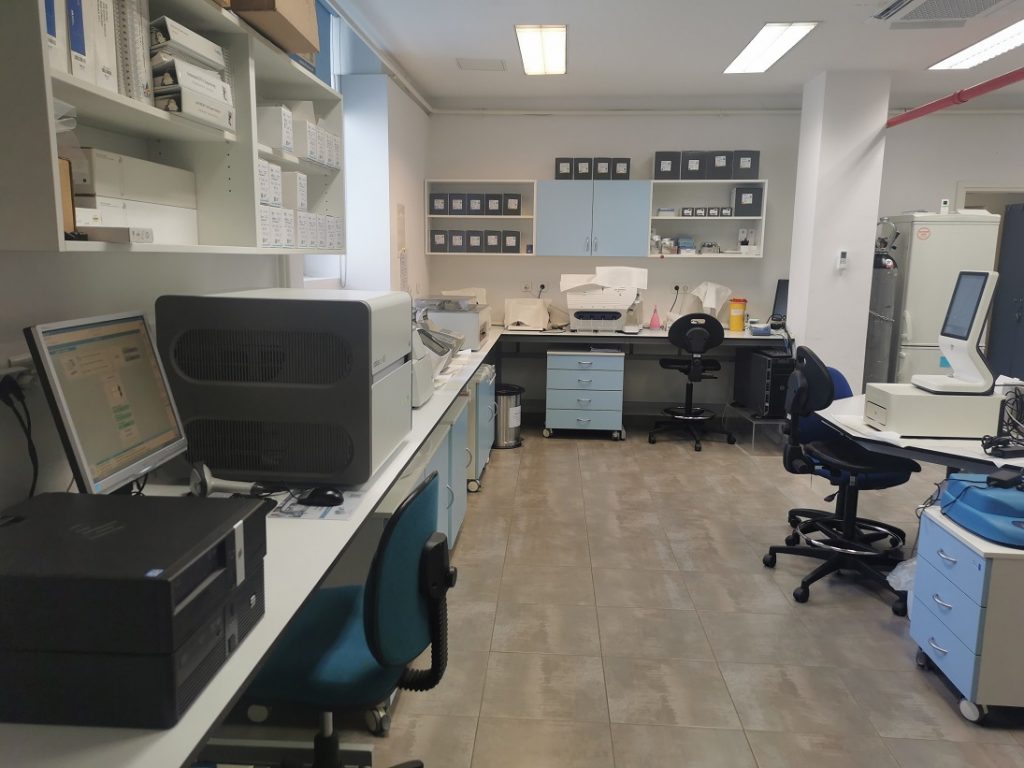9.11. International Pathology Day – 100 Years Institute of Pathology School of Medicine Zagreb

TWENTY YEARS OF THE MOLECULAR PATHOLOGY LABORATORY OF THE INSTITUTE OF PATHOLOGY UNIVERSITY OF
ZAGREB SCHOOL OF MEDICINE AND CLINICAL HOSPITAL CENTRE ZAGREB
More than 20.000 patients getting a chance for better therapeutic options.
In the last ten years molecular pathology became one of the most important tools in precise diagnosis, prognostication of disease course and prediction of response to therapeutic agents in an ever-growing number of diseases, especially neoplasia. Twenty years ago, the beginning of this era was announced with HPV testing and introduction of hybridization techniques for HER2 testing of immunohistochemically equivocal cases. As a joint action of the Institute of pathology UZSM and the Clinical Department of Pathology UHC Zagreb the Laboratory for molecular pathology was organized at the Institute of Pathology UZSM. In 2002 routine diagnostic work started. In addition to HPV and HER2 testing, flow cytometry was performed. Soon thereafter RT-PCR for Ewing sarcoma, synovial sarcoma, alveolar rhabdomyosarcoma and myxoid liposarcoma was introduced in order to expand sarcoma diagnostics. From 2010 predictive diagnostics first for colon cancer (RAS) and then for lung cancer (EGFR, followed by ALK, ROS1, KRAS) was established. BRAF for melanoma followed, and in 2018 BRCA for ovarian cancer. For BRCA analysis a new horizon opened with Next generation sequencing (NGS).

Parallel to the already mentioned genes, the panel was stepwise greatly expanded in the field of genes connected to soft tissue and bone tumors, currently including 63 genes. Despite all the drawbacks and not always clear regulations, the lab managed over twenty years to give our patient an expanding panel of molecular pathology tests embedded in the classical pathohistological diagnosis and broadening its understanding in the field of biological behavior and prediction. In this period more than 20.000 patients obtained a molecular pathology based result and opinion greatly influencing their further therapy. Currently, in the Laboratory of Molecular Pathology a broad spectrum of techniques is applied: RT-PCR, FISH, Sanger sequencing and NGS/massive parallel sequencing with the lab's workload focused on solid tumors, with roughly 3000 analyses per year. Most of analysis is connected to lung cancer, brain tumors, colorectal cancer, sarcoma, ovarian and breast cancer and melanoma, both in diagnostic/prognostic and predictive application. A tissue culture facility is also operational, for the time being included only in scientific activities. Of course, also a scientific and intensive teaching activity from graduate to postgraduate level is taking place at the lab.
